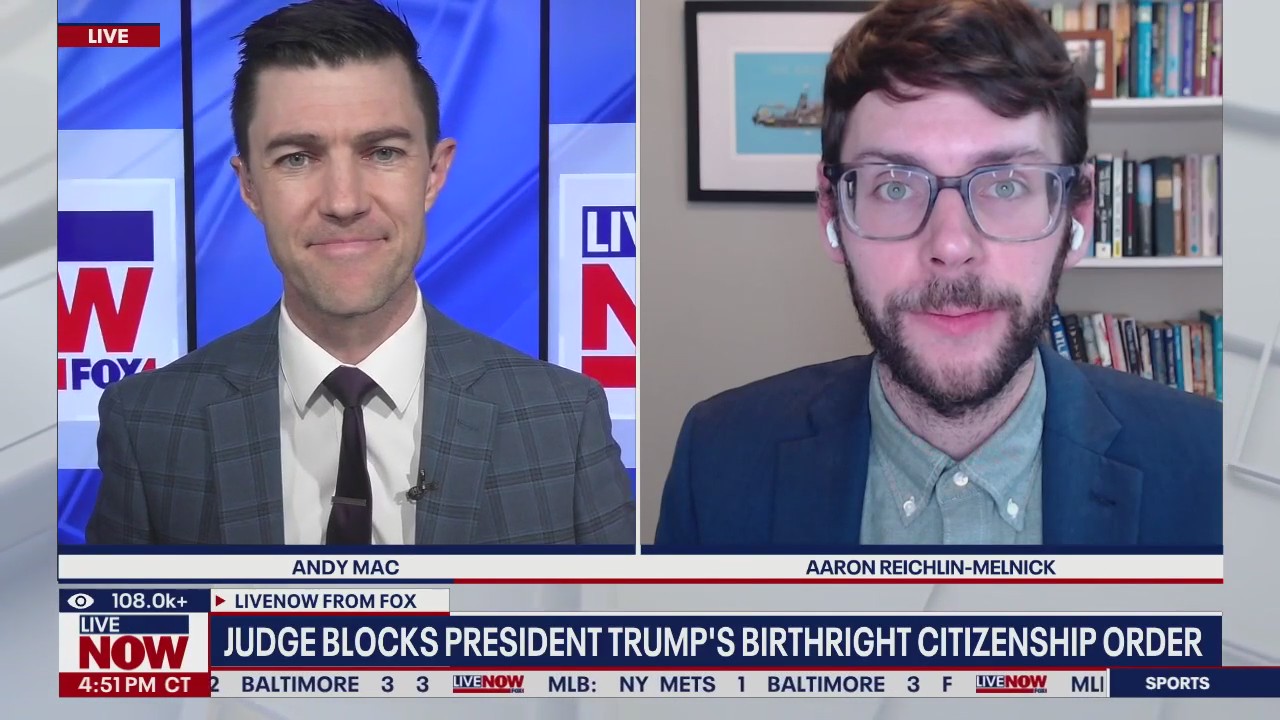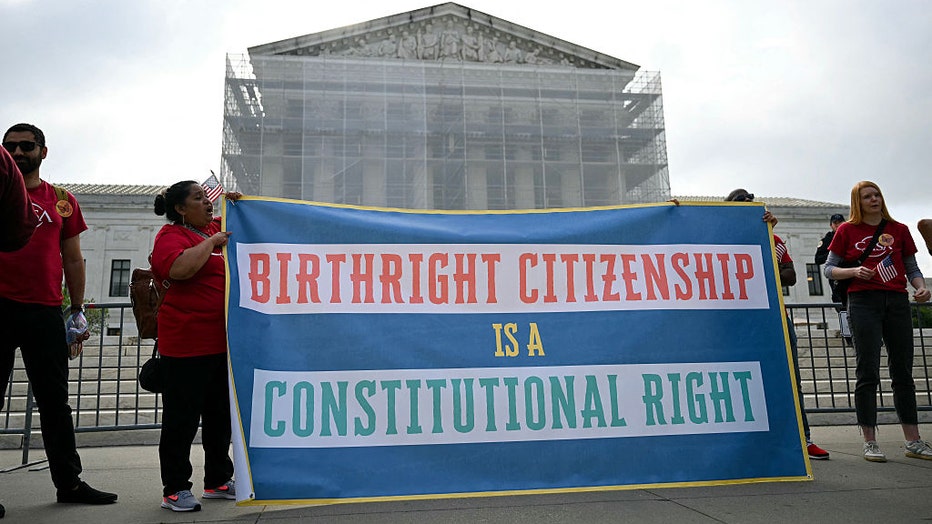Trump’s birthright citizenship order blocked by federal judge: What to know

Judge blocks Trump's birthright citizenship order
LiveNOW's Andy Mac interviews Senior Fellow from the American Immigration Council, Aaron Reichlin-Melnick, regarding the federal judge who blocked president Trump's birthright citizenship order.
A federal judge in New Hampshire said he'll certify a class action lawsuit including all children who'll be affected by President Donald Trump’s executive order ending birthright citizenship and issue a preliminary injunction blocking it.
Judge Joseph LaPlante announced his decision Thursday after an hour-long hearing and said a written order will follow. The order will include a seven-day stay to allow for appeal, he said.
The class is slightly narrower than that sought by the plaintiffs, who originally included parents as plaintiffs.
Multiple court cases challenge Trump's January order
RELATED: States sue to block Trump's executive order on birthright citizenship
Dig deeper:
The AP reported that a lawsuit was filed on behalf of a pregnant woman, two parents and their infants, which is among multiple court cases challenging Trump’s January order denying citizenship to those born to parents living in the U.S. illegally or temporarily.
According to the AP, multiple federal judges issued nationwide injunctions halting Trump’s executive order from taking effect, but in a June 27 ruling, the Supreme Court restricted those injunctions that gave lower courts 30 days to act.

FILE-People hold a sign as they participate in a protest outside the Supreme Court over President Donald Trump's move to end birthright citizenship. (Photo by DREW ANGERER/AFP via Getty Images)
What is birthright citizenship?
The backstory:
Birthright citizenship means that any individual who was born in the United States is a citizen, regardless of their parents’ immigration status.
This right has been around for years and is honored in the 14th Amendment of the Constitution, according to supporters.
The clause states: "All persons born or naturalized in the United States and subject to the jurisdiction thereof, are citizens of the United States and of the State wherein they reside. No State shall make or enforce any law which shall abridge the privileges or immunities of citizens of the United States; nor shall any State deprive any person of life, liberty or property, without due process of law, nor deny to any person within its jurisdiction the equal protection of the laws," per Congress.gov.
RELATED: Full text: Trump's executive order on birthright citizenship
However, the 14th Amendment did not always guarantee birthright citizenship to all people who were born in the U.S.
The Trump administration contends that the phrase "subject to the jurisdiction thereof" means the U.S. can deny citizenship to babies born to women in the country illegally, ending what has been seen as a part of U.S. law for over 100 years, the Associated Press noted.
The Source: Information for this story was provided by previous LIVENOW from FOX reporting, Congress.gov, and the Associated Press. This story was reported from Washington, D.C.

